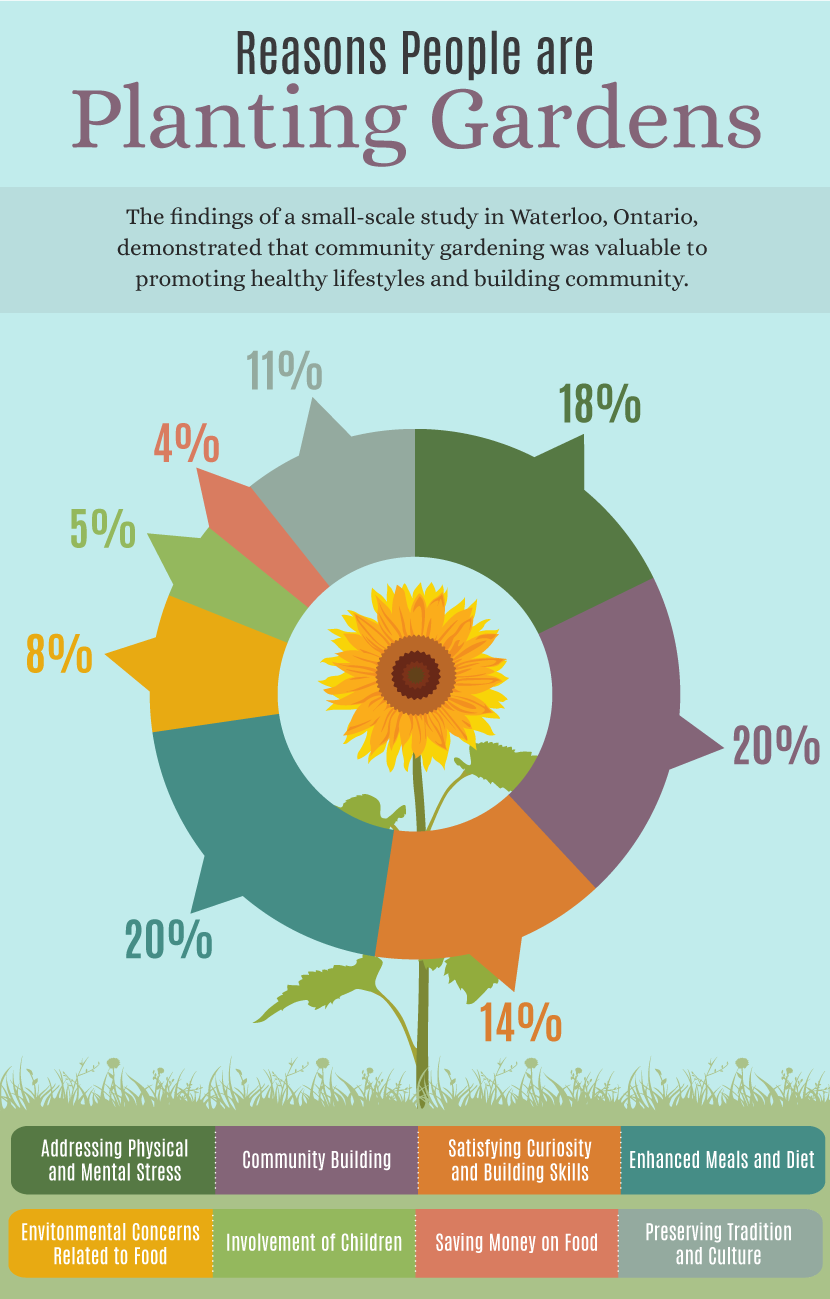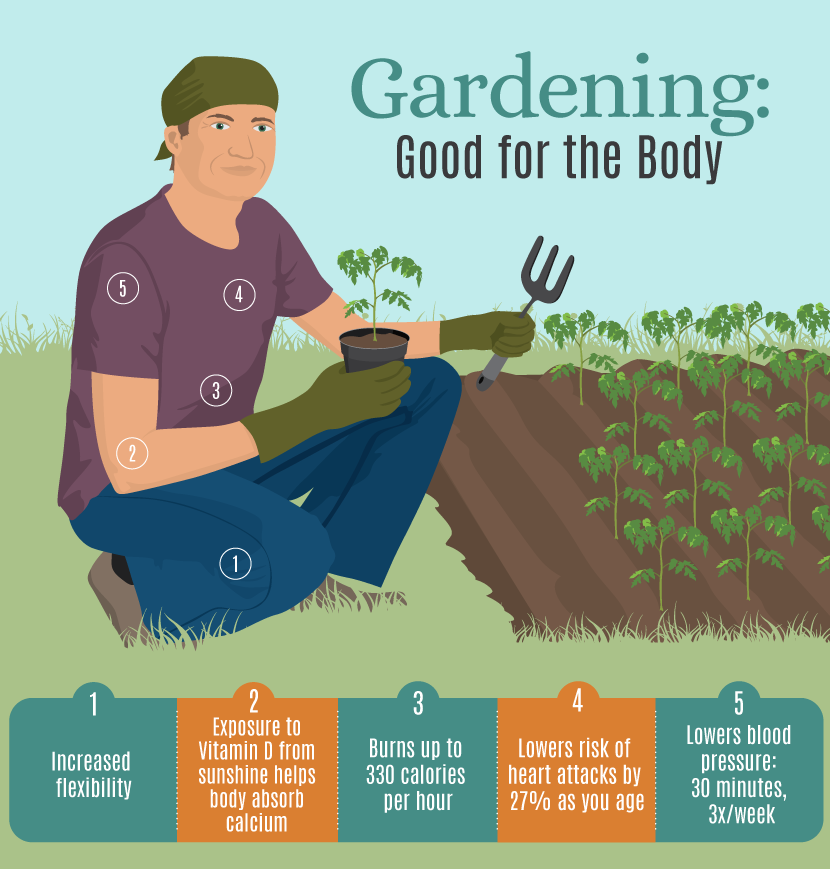Gardening for Health and Wellness
It’s not difficult to see that gardening is great light exercise, right? Hauling mulch bags, turning the compost, digging holes, and raking leaves all use your entire body, stretching and building muscle. But what if you knew that gardening is actually good for your emotional health as well? In fact, gardening is known to be beneficial for every single part of you – body, mind, and spirit.
As a cancer survivor and garden designer, I can attest to the fact that gardening is a mood lifter, a body balancer, and a mind clearer. So much so, that as I was recovering from treatment, I was compelled to write a book on the subject, The Cancer Survivor’s Garden Companion: Cultivating Hope, Healing & Joy in the Ground Beneath Your Feet, as a way of helping other people use their gardens as resources for a happier, healthier, and more balanced life. Gardens can lift your mood and soothe your soul, making even the most stressed-out person more balanced and healthy.
Most of us have too many things going on in our lives on a day-to-day basis. Whether we work outside the home, have a busy desk job, or take care of children, we try to be multi-tasking champions, often at the risk of our own health. Experts call this “Directed Attention Fatigue” – our minds are forced to focus too long and too hard, with overloading and constant stimuli. It’s not good for anyone, and can take a serious toll on every part of us.

A simple antidote is to get outside in the garden, because when we garden, the mind is able to relax and focus on just one thing. And with some garden tasks like weeding and watering, no focus is even necessary – we know what to do and can do it on autopilot. This allows the mind and body to decompress and simply connect to the moment.
A number of things that happen in the body when you garden distinguish this activity from any other type of “workout.” Fresh air, sunshine, and light movement can be invigorating for your body. Combine that with the connection to nature, growing healthy food, and making your outdoor space attractive and inviting, and you’ve got the perfect ingredients for feeling strong, balanced, and mindful.
Start cultivating a mindset about gardening that removes it from the “To Do” list and puts it squarely on the “Lifestyle” list, integrating the natural world into your daily life by starting with the garden.
And speaking of growing healthy food, we’ve heard so much in recent years about how healthy spinach and kale are, haven’t we? I’m going to assume for the moment that we know that the dark leafy greens are nutrient powerhouses. What many of us don’t know is the extent to which many other fruits and vegetables deliver a healthy punch. While we don’t necessarily need to memorize lists of nutrients and which foods carry them, it’s a good practice to reach for the brightly colored foods – fruits and vegetables that are red, purple, orange, black, blue, and dark green are known to carry significant amounts of nutrients and chemical compounds that are good for us.
You don’t need to create an orchard or have a full acre of vegetable garden to grow nutritious foods. Use your balcony railing, potted herbs/tomatoes on your patio or deck, or a small in-ground garden in your backyard. Keep it simple, plant the powerhouses, and eat up!

Fun Fact: When you dig around in the soil, planting flowers and harvesting vegetables, you are coming into contact with something called Mycobacterium vaccae, beneficial bacteria that help to stabilize mood and promote better sleep. What’s even more interesting is that you don’t even need to dig to be exposed, because simply being outside in the garden and inhaling can do the trick quite nicely. We are trained to think that all bacteria are bad, but that is not necessarily the case – exposure to these “good” bacteria in the soil can help to strengthen the immune system, optimizing health.
As you continue gardening and expand your skills and knowledge base, start thinking of other activities that you can bring out to the garden. Begin with activities that you used to only do inside, then figure out a way to do them outside in your garden. Create areas in your garden that help you do these things more easily, like small, comfortable seating, level decks and patios, and soft grassy spaces.
Why do these things outside with your garden as the backdrop? Because the garden engages all of your senses, which puts your entire being in a more serene, relaxed state — just another layer of health and wellness. For example, use your “outdoor rooms” for:
- Yoga
- Meditation/Prayer
- Tai chi
- Work (phone calls, light computer work)
- Reading
- Eating meals (don’t reserve this just for company!)

Aside from bringing daily activities out to the garden, start thinking about other ways your garden can contribute to your overall health and wellness. Among my favorites:
- Use edible flowers to garnish salads and cocktails (geraniums, violas, roses, marigolds, lavender, nasturtiums)
- Use dried herbs for tinctures (find the details on the internet)
- Use scented plants for aromatherapy (lavender, mint, rosemary)
- Work (phone calls, light computer work)
- Use fresh and dried herbs for teas (chamomile, lavender, mint)
- Bring cut flowers and foliage inside to brighten up your work and living spaces
Now, I can’t promise you that all of your challenges and issues will disappear if you start a little garden in your backyard, but what I can promise you is this: If you are suffering from stress, illness, depression, anxiety, mobility issues, or chronic pain, the garden can help. It may not cure every ill or take away your problems, but it’s a powerful ally for an overall healthy, balanced, joyful, and long-lived life. By adding gardening into your lifestyle, even for 30 minutes three times a week, your body, mind, and spirit will reap the rewards.
Embed the article on your site

